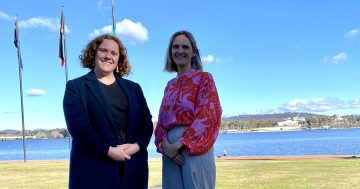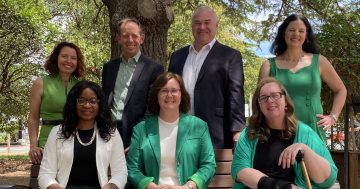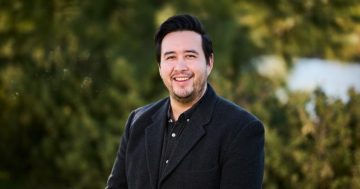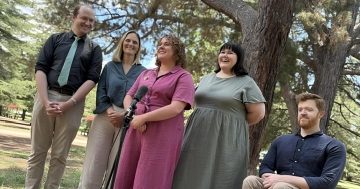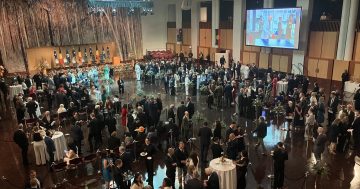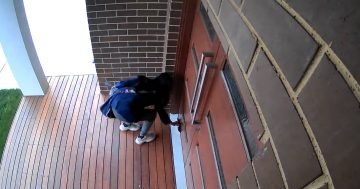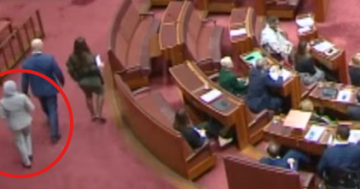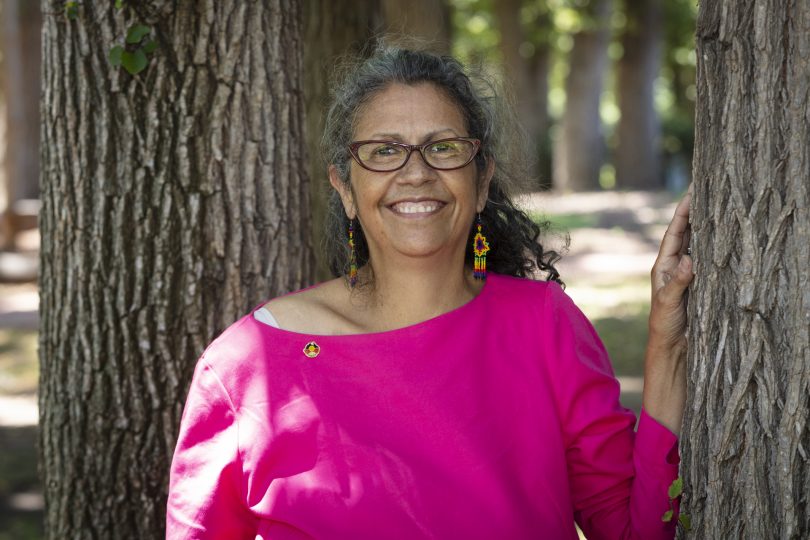
Greens senate candidate Tjanara Goreng Goreng. Photo: Thomas Lucraft.
Greens candidate Tjanara Goreng Goreng has been many things – student, truck driver, construction worker, a long term public servant and a Canberra resident for 45 years.
Born of activist parents – her father was a communist – she has a PhD from the ANU and has been fascinated by politics since she married an older Press Gallery journalist in her 20s, imbibing parliamentary drama from the constant flow of journalists and politicians through her doors.
But she says it was amid a moment of solitude at Parliament House that the voices of her ancestors told her to run for the Senate.
“The main thing about me is that I am a First Nations person, a Wakka Wakka Wulli Wulli woman from central Queensland,” she tells Region Media.
Drawn to the songline that runs from the women’s mountain through Kurrajong Hill, Goreng Goreng often goes to the site to sit beneath a tree and reflect.
“Some of your readers will think this is fascinating, some will think it’s a load of rubbish,” she says.
“I was standing there one afternoon, nobody around, on a grey hazy day and suddenly two eagles circled the pond and mural and flew straight above me.
“I felt the ancestors say ‘turn around and watch’ as they flew in under the kangaroo and emu at the front entrance area. Then I heard the ancestors say ‘You’re going to go in there one day and be a senator, so get ready’.
“When this happens as Aboriginal people – I’ve been through ceremony and it tends to happen to you more when you have been – you get those visions for the purpose of your life. I always say yes because we serve our community but you never know what that really means until you have to step up and get ready – emotionally, physically and mentally.”
Goreng Goreng is no stranger to controversy. At the height of the Northern Territory intervention, she leaked sensitive emails detailing government policy on sexual abuse and petrol sniffing to a Mutitjulu Council official while working as a public servant at the Office of Indigenous Coordination. Convicted of releasing Commonwealth information, she was placed on a good behaviour bond.
Goreng Goreng says that as a public servant across multiple departments, her focus was always on fostering self determination and working with communities on the ground about how legislation could best meet their needs.
“I’ve always worked in and fought for workers’ rights. That was a big deal for me when I became a senior administrator and manager of people,” she says. “I always put people first.”
She joined Labor after leaving the public service but felt frustrated by the major party’s mechanisms. Friends and family urged her to join the Greens, whose consensus decision-making resonated with her cultural beliefs and academic work on transformative systems.
“At least you can have a good debate and argument with the Greens and you can convince them, – whereas in the Labor Party they don’t listen to anything we say,” Goreng Goreng says.
“I thought I’d give it a go and felt instantly connected, especially to the women in the Greens and their open acceptance.”
Goreng Goreng says First Nations voices are recognised at the core of Greens climate action, a central cause for her Senate candidacy.
She also has a strong focus on reforming welfare practises that are “derogatory, shaming and blaming” for vulnerable Australians and wants a greater focus on community-based solutions for homelessness and housing stress.
“We need to move from conservative ways of thinking about Australians to looking after everyone, not just the elites, but all of us. We all deserve to reap the benefits we have in this country,” she says.
Goreng Goreng acknowledges there’s a tough battle ahead of her, particularly now that David Pocock and Kim Rubenstein have nominated as progressive independents. But she thinks the Greens’ strong result at the last ACT election has also boosted her chances.
“We’ve done the work and it is a game of mathematics and getting votes. We feel that if we run an authentic campaign and do politics on the ground in the community, we’ll get the numbers. We won’t lose our own vote and we won’t be fourth after two independents,” she says.
Winning will require a mix of preferences, including some centrist Liberal votes. Goreng Goreng says people should examine which policies are similar on issues like gender equality and indigenous issues, then use their preferences wisely.
“I’ve got a PhD, I know how to read a graph and it’s possible. I truly believe we are very close,” she says.












